Information on the food
Every day, we will offer you a very affordable main course at a fixed price: The vegan hit for 2.99 euros. Other main dishes, soups, side dishes and desserts complete the daily menu. These include dishes with meat or fish from sustainable production and even more fresh, high-quality ingredients.
We strive to use as many foods as possible without additives and, as a matter of principle, do not process any genetically modified ingredients. We also demand this from our suppliers. We value fair trade as well as responsible and sustainable food production
- We source many ingredients directly from the region: Heckengäulinsen, red cabbage & organic sauerkraut from the Fildern, regional juices.
- We purchase meat and sausage products from butchers in the region, and fish from sustainable fisheries.
- Our coffee/cocoa beans come from organic farming and fair trade.
- In addition, we offer organic food, such as yogurt and beverages.
On the notices and in our menu, we label all dishes in detail in accordance with food law requirements: these are ingredients with potentially allergenic or intolerance-triggering effects (e.g. milk and gluten). Nuts and grains are subdivided into the individual types. In addition, we provide the nutritional values of a food: Fat, carbohydrates/sugar, protein, salt as well as the calorific value.
If you don't want to eat dishes with certain ingredients, the filter function of our menu makes it easier for you to choose what you want to eat. Lactose-free milk and plant-based drinks are also available as alternatives at every coffee machine.
You want to take your meal with you? We will be happy to hand out the dish of your choice in a REBOWL returnable deposit tray (deposit: 5 euros). They are made of polypropylene (PP), which makes them 100% recyclable and free of BPA and harmful substances. In addition, the bowl is leak-proof, microwave-safe, dishwasher-safe and is made in Germany.
Certificates
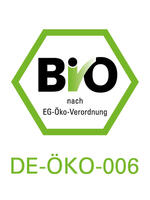
Bio label
The bio label stands for the use of food from ecological farming and food processing. This means, among other things: no chemical plant protection; no easily soluble mineral fertilizers; no use of synthetic growth regulators or hormones; stocking density strictly limited to the amount of land available; the livestock is given own-produced feeds as far as possible; broad renunciation of antibiotics; and natural raw materials instead of additives.
Two times a week, we offer organic dishes that contain only ingredients from purely organic farming and animal keeping. We also offer organic food and drinks in our cafeterias.
For more information: https://www.oekolandbau.de/en/bio-siegel/
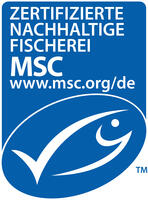
MSC Marine Stewardship Council
We only use fish that come from MSC-certified fisheries. This means that the fishery has been independently certified for exemplary and sustainable fishing in accordance with the MSC guidelines. The MSC's blue seal of approval gives consumers the opportunity to make an environmentally conscious choice.
MSC Certification Code Studierendenwerk Stuttgart: MSC-C-51632
For more information: https://www.msc.org
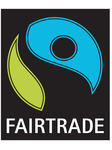
Fairtrade
All our coffee specialties – whether espresso, latte macchiato or just coffee pure and simple – are made with coffee beans from organic farming and fair trade.
For more information: www.fairtrade-deutschland.de
Free-range eggs
We prefer to buy our eggs regionally in Baden-Württemberg or Bavaria. Above all, our eggs are always free-range eggs!

European Broiler Chicken Initiative
We are part of the European Broiler Chicken Initiative. We therefore declare: We will implement the requirements of the initiative for 100% of the chicken meat purchased in Europe by 2026 at the latest. We publish annual reports on the progress of the implementation and have independent checks carried out to ensure compliance with the standards.
The European Broiler Chicken Initiative originates from an association of around 30 animal welfare organizations with the main objective of improving the keeping of broilers. Important animal welfare aspects such as a lower stocking density, the restriction of overbreeding and minimum standards for light and employment material are implemented.
Until meat is available that meets all the criteria of the European Broiler Chicken Initiative, we will fall back on similar offers such as the entry level of the German Animal Welfare Association and successively increase their share in our product range.
More information: https://masthuhn-initiative.de
Hygiene and quality controls
Gutes Essen in Hochschulmensen
STUDY&FIT
Other labelling
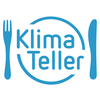
KlimaTeller
A dish is awarded the KlimaTeller logo if it causes at least 50% less CO2 than a comparable, average dish. Whether a dish is climate-friendly is determined using the KlimaTeller app. The CO2 values stated in the menu are calculated independently by the Studierendenwerk Stuttgart.
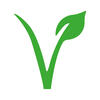
Vegan
We offer a vegan dish several times a week. On days when there is no vegan dish to choose from, there are buffets with a large selection of salads, vegetables, and side dishes.

Vegetarian
We serve two vegetarian or vegan dishes in our canteens every day.

The vegan hit
We offer daily a very affordable main course at a fixed price: The vegan Renner. The heavily subsidized dish costs 2.99 euros for students.
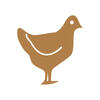
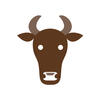
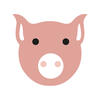
Meat
So that you always know which meat we use in our meals, each animal has its own icon.
Self-monitoring system according to HACCP principles
The Studierendenwerk Stuttgart works with a self-checking system specifically developed for the different canteens and cafeterias. The self-monitoring system according to HACCP principles is used to identify, evaluate, check, and control health hazards in each individual stage of production – from the receipt of the goods right through to the finished dish and where it is served. Defined guidelines and limits provide the framework for product safety. The HACCP concept includes, for example, cleaning rotas, incoming goods checks, temperature records and training certificates. HACCP stands for "Hazard Analysis and Critical Control Point".
All employees working with food receive regular training on the topic of infection control and general hygiene conditions (e.g. personnel, product, and work hygiene). Likewise, so-called retain samples of all the ingredients are taken in all the canteens. These are kept frozen for at least seven days so that they may be tested for harmful bacteria.
Above the legal requirements, we regularly and voluntarily review our strict quality assurance and hygiene concept by means of an external, neutral institute.
For more information: www.haccp.de

